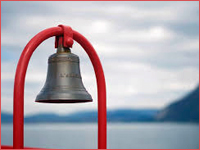 It’s been said that ‘Optimists learn English, pessimists learn Chinese, and realists learn how to use an AK47.’
It’s been said that ‘Optimists learn English, pessimists learn Chinese, and realists learn how to use an AK47.’
We’re probably not quite at that stage just yet but it is good to be reminded as to how and why we are not.
Above the Courts of Justice in London stands a statue of Jesus. It is there to signify the Common Law’s origins in Christianity.
When the King is presented with the Bible, these words are spoken: “To keep your Majesty ever mindful of the law and the Gospel of God, …. we present you with this Book, the most valuable thing this world affords. Here is wisdom; this is the royal law; these are the lively oracles of God”. Stephen Langton, Archbishop of Canterbury (1207-1228) helped write the Magna Carta, the world’s pre-eminent document on human rights which forms the basis of so many of our laws.
A recent Report (November 2025) published by Flinders University, Turning Away from Democracy? Democratic Antipathy and Support for Undemocratic Practices Among Young Australians, found that only 56 per cent of young Australians (18–29) believe democracy is the best form of government. That 44 per cent of young people do not believe it is the best form of government is alarming to say the least.
Some of its other findings are equally alarming. For example, 38 per cent of young Australians support ‘the use of force to prevent policies they disagree with from being enacted’; 39 per cent agree that ‘the government should be able to bend the law when required’; 36 per cent agree that ‘the Prime Minister should be able to ignore court decisions’; and 25 per cent support ‘committing voter fraud to prevent a party they dislike from winning’.
When our system of government is being questioned in this way, it is timely to consider some of the world’s alternatives. Writer Evan Thompson provides a useful summary:
- Theocracy. A form of government in which a specific religious ideology determines the leadership, laws and customs of the country. Iran is the world’s largest theocracy in which the Ayatollahs — Shiite religious leaders — rule the country and implement Islamic Sharia law. Iran has immense influence on several neighbouring countries.
- Military Dictatorships. Rule by a single authority with absolute power and no democratic process. Installed by the nation’s armed forces, military dictators dismiss due process, civil liberties, and political freedoms. Dissent or political opposition is banned by the ruling military junta. Examples include Myanmar, Sudan, Chad and Mali.
- Monarchy. Not to be confused with Constitutional Monarchies such as our own, ruling monarchies have a person as head of state for life, a position passed down through a succession line related to one’s bloodline and birth order within a ruling royal family. Today’s monarchies include Saudi Arabia, Morocco and Oman.
- Communism. A centralized form of government headed by a single authoritarian political party. Total control of the economy and of production, labour, goods, property and natural resources. Communist countries include China, Cuba, Laos and Vietnam.
- Totalitarianism. A form of government in which the ruling party sets no limitations whatsoever on its power. Its citizens are completely subservient to the state. A single figure often holds power and maintains authority through widespread surveillance, control of the media, intimidating demonstrations of military or police power, and suppression of protest, activism, or political opposition. North Korea is an example of a totalitarian state. Any criticism of the supreme leader is punishable by death.
- Authoritarianism – a lesser form of totalitarianism in which an authoritarian government rejects political plurality and uses strong central power to preserve the status quo. Authoritarianism pays little regard to the rule of law, the separation of powers between parliament and the courts, or democratic voting. Much of Central and Eastern Europe, Africa, the Middle East, Asia, Latin America and the Caribbean falls into this category.
Of the 193 countries in the world, 153 of them are governed by one of these non-democratic systems. Barely 40 countries in the world are functioning democracies. And of those 40, 36 have a Judeo-Christian heritage and the other four (India, Japan, South Korea and Taiwan) had strong Christian/Western influence that led them to democracy.
The link between Christianity and stable democracy is obvious and sometimes we need to remind ourselves of Christianity’s great contributions to the world.
The late Rabbi Jonathan Sacks said, “To defend a country you need an army. But to defend a free society you need families, schools and an educational system in which ideals are passed on from one generation to the next, and never lost, or despaired of, or obscured. It is not difficult to gain liberty, but to sustain it is the work of a hundred generations. Forget it and you lose it.”
Thank you for your support.
 Four incidents converged recently – two from Western Australia and two from South Australia.
Four incidents converged recently – two from Western Australia and two from South Australia.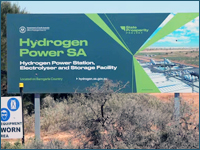 When John D. Rockefeller died in 1937, he was reputedly the richest man in the world.
When John D. Rockefeller died in 1937, he was reputedly the richest man in the world. Bob Dylan’s soulful ballad from his 1975 album Blood on the Tracks provides a helpful guide to where we finally might be heading on climate change and renewable energy.
Bob Dylan’s soulful ballad from his 1975 album Blood on the Tracks provides a helpful guide to where we finally might be heading on climate change and renewable energy. In that classic scene from the movie A Few Good Men, Lieutenant Daniel Kaffee, played by Tom Cruise is defending two Marines accused of murdering a fellow Marine based at Guantanamo Bay.
In that classic scene from the movie A Few Good Men, Lieutenant Daniel Kaffee, played by Tom Cruise is defending two Marines accused of murdering a fellow Marine based at Guantanamo Bay.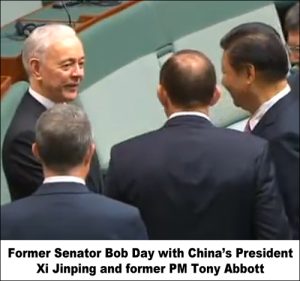 As reported in my previous comments on China in
As reported in my previous comments on China in 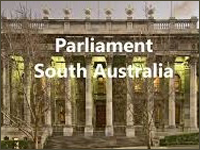 At the Australian Family Party, we have always believed in building a stronger nation — through Defence, Economy, and Family.
At the Australian Family Party, we have always believed in building a stronger nation — through Defence, Economy, and Family. A number of years ago, my wife and I visited Israel. We had hired a car and had been driving for a number of hours in northern Israel along the border with Lebanon then through the Golan Heights stopping at a number of Druze villages along the way.
A number of years ago, my wife and I visited Israel. We had hired a car and had been driving for a number of hours in northern Israel along the border with Lebanon then through the Golan Heights stopping at a number of Druze villages along the way.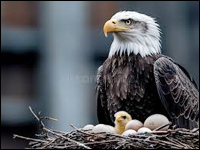 In a recent
In a recent  In 1969, former SA Federal MP Bert Kelly was sacked as Minister for the Navy after the Australian aircraft carrier HMAS Melbourne collided with America’s USS Frank E Evans in the South China Sea. Ministerial responsibility was interpreted differently in those days.
In 1969, former SA Federal MP Bert Kelly was sacked as Minister for the Navy after the Australian aircraft carrier HMAS Melbourne collided with America’s USS Frank E Evans in the South China Sea. Ministerial responsibility was interpreted differently in those days. When the great French novelist Victor Hugo was in his 80s, he reflected on his life with the words, “I am like a forest that has been continuously cut down; yet each time I am cut down, the new growth has more life than ever”.
When the great French novelist Victor Hugo was in his 80s, he reflected on his life with the words, “I am like a forest that has been continuously cut down; yet each time I am cut down, the new growth has more life than ever”.